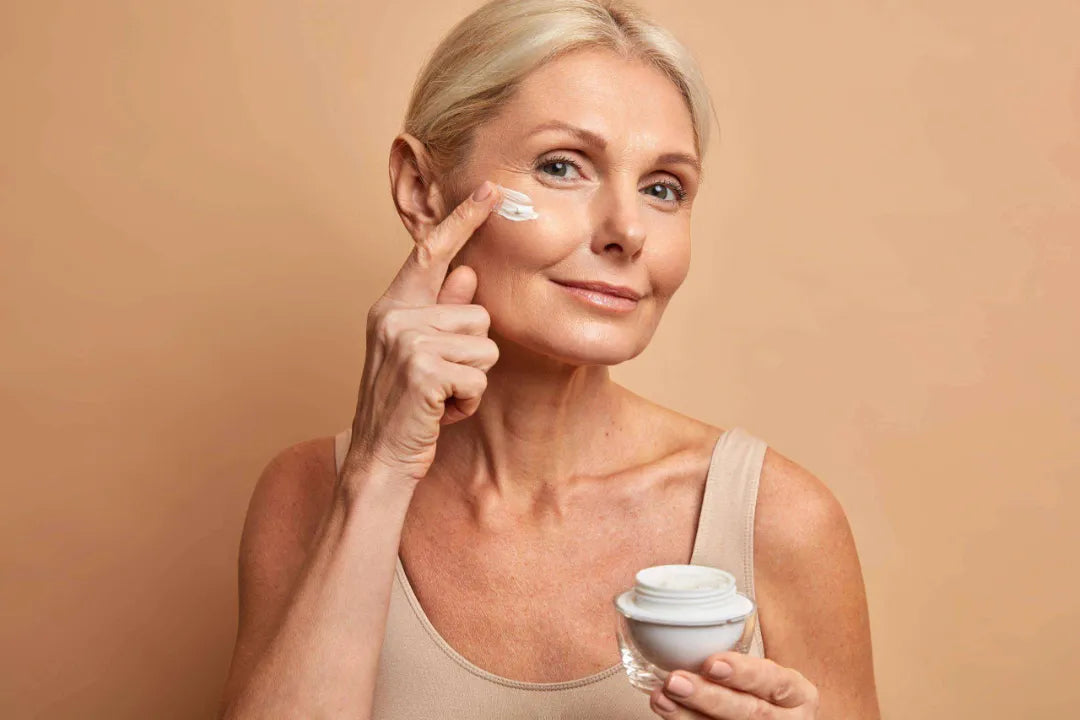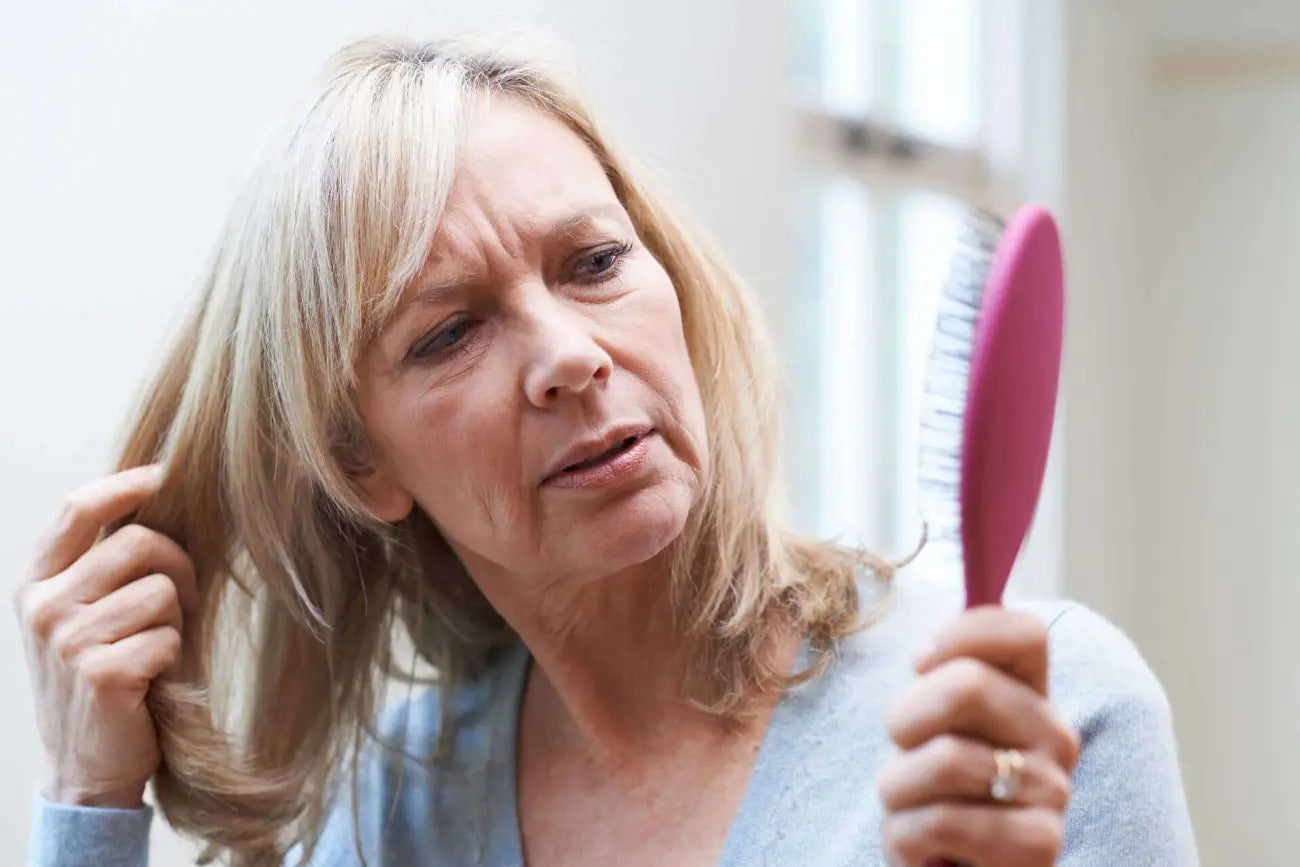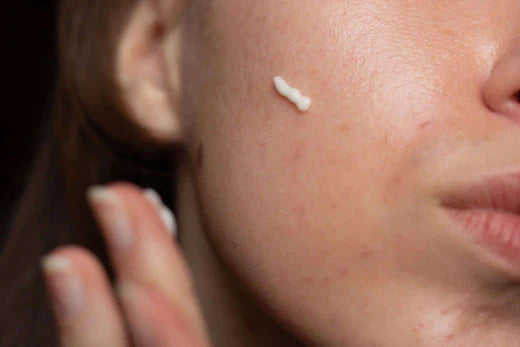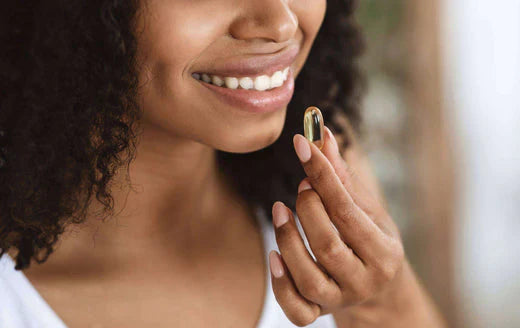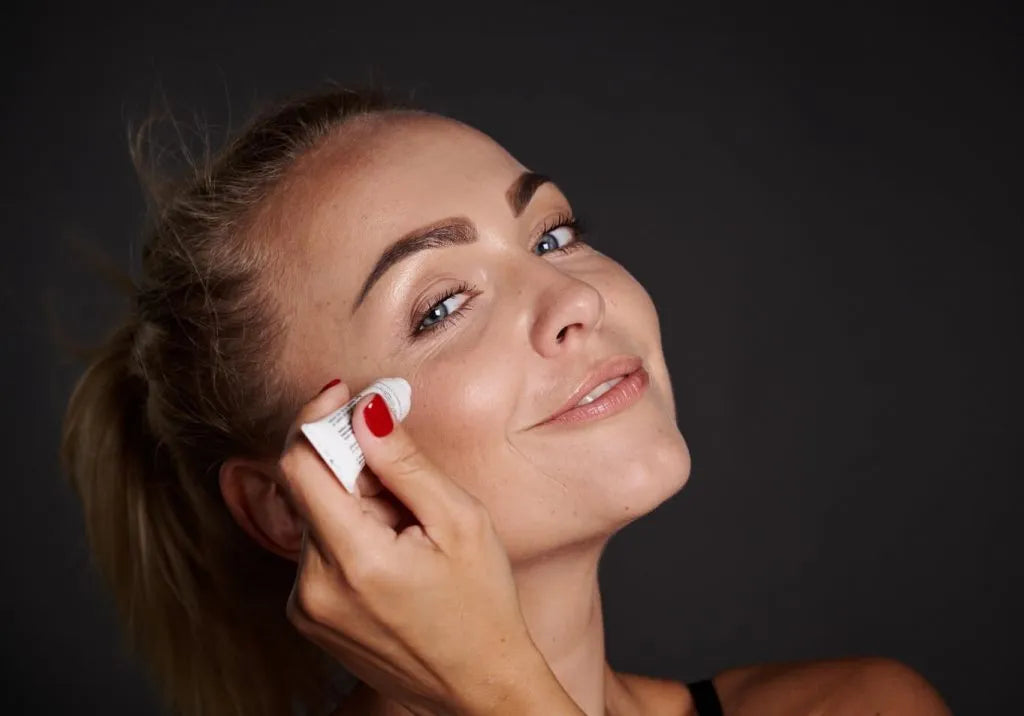Dry skin occurs when the skin loses too much water and natural oils. It is common and can happen in any part of the body, but it is most frequent in the hands, feet, arms, and lower legs. Some of the leading symptoms of dry skin are peeling or flaking and a rough feeling upon touch. Other signs include itching, tightness, and even bleeding cracks (Medline Plus, 2021). Hormone changes tend to produce dryness in the body’s mucous membranes during menopause. This affects the skin, especially because oestrogen and progesterone are fundamental for healthy skin. As a result, lower levels of these hormones lead to drier, more fragile skin. Additionally, those changes can accelerate aging and produce itching and sagging (Instituto de la Menopausia, n.d.). Learn more about why the menopause can worsen this skin condition.
Menopause changes which cause dry skin
As you already know, this is one of the menopause symptoms that occurs due to hormone changes. Lower oestrogen levels and aging cause a drop in collagen and elastin –proteins that strengthen skin and make it elastic. Therefore, the skin becomes thinner, drier, less elastic, and more vulnerable to injuries (Pinkerton, 2021). Let’s take a closer look. On the one hand, collagen gives consistency to skin tissue as part of the matrix of the cells. It is responsible for the tone of the skin’s outer layer, or epidermis. Consequently, a lack or reduction of collagen increases wrinkles and stretch marks. Additionally, lower elastin levels amplify these effects. Moreover, aging can produce spots or excessively pigmented areas on the epidermis (Sanitas, 2019). On the other hand, oestrogen deficiency also leads to lower oil and sweat production, contributing to developing this condition Furthermore, lower oestrogen levels increase the skin’s permeability, causing it to lose moisture. In turn, it advances aging in the skin by shortening the thickness of the dermis and the epidermis. It can even impact body hair density causing hair loss by making it thinner (González, n.d.).

How to care for your skin during menopause
The key to treating this dryness is to keep it hydrated. For instance, using lukewarm water instead of hot water to bathe allows the skin’s natural, protective oils to remain. You can also use hydrating moisturisers with components that help retain water in the skin, such as lactic acid and mineral oil (Dinulos, 2021).
Recommendations to prevent dry skin
These are some recommendations that can help you care for your skin and prevent it from becoming dry during menopause (Instituto de la Menopausia, n.d.; Medline Plus, 2021):
- Avoid using aggressive or overly chemical skincare products.
- Hydrate your skin with moisturiser two or three times a day. Choose products with ceramides (a natural skin component) and antioxidants like vitamin A, C, and E to fend off cellular damage.
- Exfoliate regularly: it can help keep skin hydrated and delay aging.
- Stimulate collagen production with supplements, moisturisers, and treatments.
- Use sunscreen daily, of at least SPF30, to avoid sun damage.
- Keep a healthy diet of hydrating foods, like fruits and vegetables. They have antioxidants that can help prevent dry skin and aging.
- Drink plenty of water to keep your body and skin hydrated.
- Avoid smoking and alcohol, as they contribute to accelerating skin aging.
The hormone changes that take place during menopause can lead to dry skin. Improving your daily habits and skincare routines can help avoid it and aid you in keeping your skin healthy and beautiful.
References
- Dinulos, J. (2021). Piel seca (xeroderma). https://www.msdmanuals.com/es/hogar/trastornos-de-la-piel/trastornos-de-la-cornificaci%C3%B3n/piel-seca-xeroderma
- González, P. (n.d.). Menopausia, el impacto en la piel. EFE: Salud. https://efesalud.com/menopausia-impacto-la-piel/ Instituto de la Menopausia.
- (n.d.). Menopausia y sequedad. https://www.institutodelamenopausia.com/divulgacion/sintomas/menopausia-y-sequedad
- Medline Plus. (2021, 19 de julio). Cuidados personales - la piel seca. https://medlineplus.gov/spanish/ency/patientinstructions/000751.htm
- Pinkerton, J. (2021). Menopausia. https://www.msdmanuals.com/es/hogar/salud-femenina/menopausia/menopausia
- Sanitas. (2019, 14 de octubre). Cuidados de la piel en la menopausia. https://muysaludable.sanitas.es/salud/envejecimiento/cuidados-de-la-piel-en-la-menopausia/
You May Also Like

JOIN US AND GET 10% OFF
Sign up to our newsletter to access free resources, advice and support.



